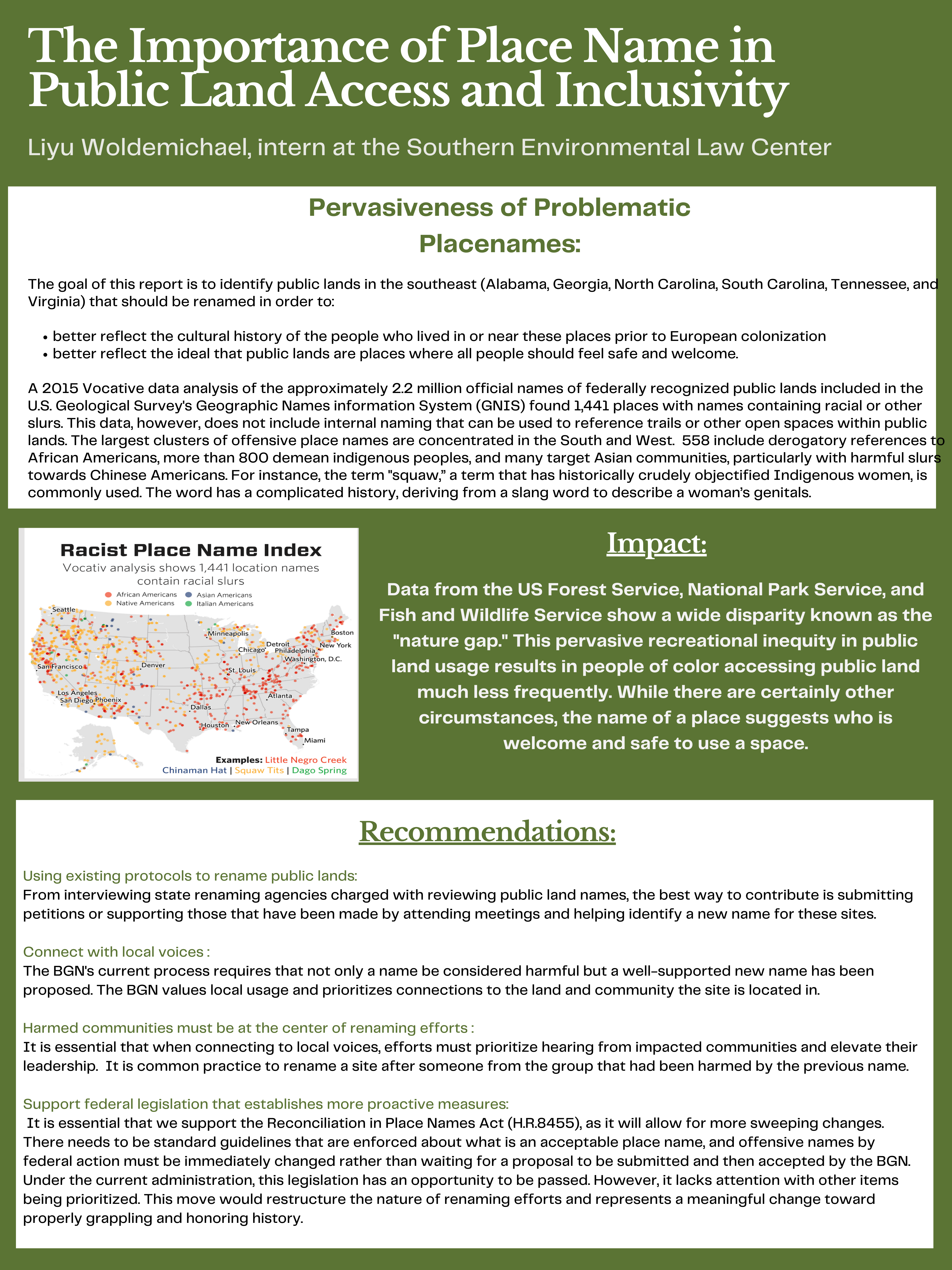

Liyu Woldemichael is an undergraduate student studying Public Policy and African and African American studies. She is passionate about environmental justice and the many ways it can be applied. Her current project explores the importance of a place’s name in demonstrating who is safe and allowed to use a space, particularly looking at public spaces like state parks.
Ask me a question about this poster! Please send me an email.
Liyu, this is really awesome research! It’s unfortunate that a lot of these names are just overlooked although they are very harmful.
Liyu, this is a fascinating and understudied/under-considered issue, so thank you for bringing it to brighter light.
I’d like to see a greater focus on your impact slide. Although it makes total sense that members of these targeted communities can and do feel “othered” by these derogatory names, I would have liked to see more detail in your discussion on the names’ impact.
Hi Liyu,
This is great research! As you said in the poster, not a lot of attention is brought to this issue, and I’m sure that like me, others didn’t know there were so many places with slurs as names. Your bringing this issue to our attention definitely helps renaming efforts gain support. Thank you!
Hello, Liyu! Loved your research! It’s especially interesting to see the trends of slurs move as you move across the country. For example, as you move west you see an increase in slurs towards Native peoples, which is correlated with an increase in Native communities and Native visibility. It would also be interesting to see how national or local government policy towards these marginalized groups at the time of naming locations is connected.
Liyu, this is really amazing! I appreciate how you lay out this change as being tangible and realistic through pre-existing legislature. This makes me wonder about the naturalization of indigenous phonetics into “non-problematic” names (i.e. Mississippi and other locations). Is there a more radical renaming process that could assist in deprivatizing lands? Much to think about
Comments are closed.